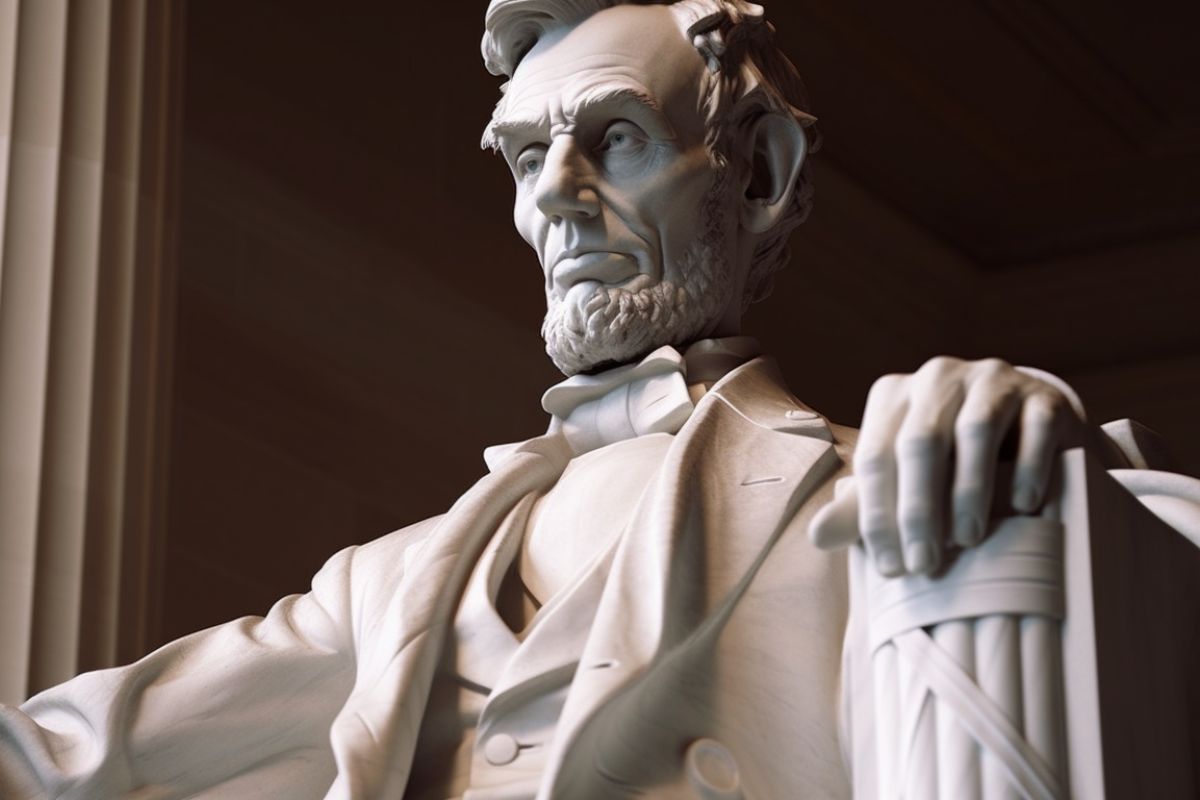
President Abraham is The Great Emancipator for his part in black emancipation. But little is known of his exploits as a major proponent of the federal monetary structure. Andrew Jackson vetoed the “Bank Bill” to the Senate in 1832. Later on, Jackson tagged it as the greatest achievement of his life. The bill killed the country’s central bank, and the outbreak of unrest mounted fresh pressures on an already strained country. To finance the conflict, he and Salmon P. Chased proposed the creation of a new treasury structure. The result is what we currently know it to be today. Let us explore how his creation shaped America.
How Lincoln’s Policies Shaped the National Banking Structure
The United States had a decentralized depository structure at the start of the civil unrest. State-chartered banks issued their banknotes independently of the federal administration. The head of state and his associates in the government needed a more stable way to sponsor the warfare effort. In 1981, he and Treasury Secretary Salmon P. Chase proposed they create a new treasury administration.
This head of state played a huge part in transforming America into a superpower. He successfully waged a battle that preserved the Union. He also ended slavery and created the possibility of freedom for African-Americans. As a result, Abraham Lincoln is constantly the subject of major discussions. If you’re writing an essay or thesis paper on this topic, use the free list of Abraham Lincoln essays to inspire and learn more about different aspects of his life. The essay examples contain information on his achievements and assassination; you can use them as extra materials for your research paper.
Congress passed the National Banking Act in 1863. This created the monetary administration. Unlike the state-chartered treasuries, the federal bank could issue uniform money. It also provided a more reliable source of financing warfare. With the new structure in place, local treasuries became apparatus members. They were also allowed to buy bonds to secure their banknotes. The institution then uses the bonds as collateral for issuing currencies.
The proposition created a network of institutions. Collectively, they offer depository services and loans across the country. It ultimately contributed to commercial growth and development. It also replaced the state-chartered banknotes that had been used previously.
How Lincoln’s Vision for The National Banking Structure Transformed the American Economy

Andrew Jackson demolished the singular banking approach in the 1930s. But he signed a new banking structure into law through the National Banks Acts of 1863 and 1864. In his 1864 State of the Union address, he said, “The structure will create a reliable and permanent influence in support of the national credit and protect the people against losses in the use of paper money.”
It Created a Stable Monetary Arrangement
The decentralized arrangement America operated on was not stable. He solved this problem by creating a network of banks. He also created a federal currency and a regulatory framework. The Acts created the Federal-State dual structure. This apparatus currently defines the U.S. depository structure. He allowed institutions to buy government bonds and created an instant demand. Many state and private institutions were forced to join the federal treasury, the only way to issue notes to borrowers. The system also allowed institutions to issue banknotes for up to 90% of each bank’s bond value as customer loans.
Enhanced Growth
The stable source of financing facilitated the war. It also played a significant part in the post-war business boom. The system financed the growth of several industries and businesses. Credits became more affordable and accessible to business owners. As a result, they could start new ventures and create jobs. It laid the foundation for the modern operations we have today, such as the use of banknotes and electronic funds transfers.
Lincoln’s arrangement established America as a global power. It provided more stability for institutions and made them more attractive for foreign investments. It fueled commercial growth and set the nation on a pedestal for international power.
Why Lincoln’s National Banking Arrangement Matters Today
Lincoln’s monetary structure has supported America’s prosperity for the last 150 years. Despite its age, it still matters today and will continue to do so into the foreseeable future. Below are three reasons why the structure still matters today.
It Introduced Innovations
The paper funds created by the structure were a precursor to electronic funds transfer. It has evolved into cryptocurrencies, online and mobile payments, etc. All of these make transactions more accessible and convenient, and like others, he laid the foundation. His actions necessitated improvements that ensure the relevance of monetary networks today.
It Offers Stability
America had a fragmented structure before his intervention. There were different currencies in circulation, and conducting business was cumbersome. Apart from this, individuals had no faith in the financial apparatus. But the structure introduced a regulatory framework and currency, making coffers more stable and reliable. Today, the principles remain vital to maintaining trust in the country’s institutions.
It Provided Regulation and Oversight
The structure protected customers by acting as a regulatory oversight for institutions. In the past, treasuries operated without any form of regulation. They were vulnerable to any crisis. Today, oversight is still a crucial part of financial institutions. It sets ethical and legal boundaries within the bank and protects customers. His innovation laid the foundation and demonstrated the importance of regulation in the country’s monetary structure.
Conclusion
The head of state believed in equal opportunities for all. One of the ways he ensured this was by creating the monetary administration. The structure facilitated the upward mobility of low-and-middle-income groups. It also increased their opportunity to establish businesses. Apart from this, it created a more stable institution. His plan financed the war and promoted economic growth and development. Ultimately, it laid the foundation for modern operations and made them more reliable.
Abraham Lincoln is one of the most significant figures in American history and world politics. His leadership and decisive actions kept the country unitary during the war, freed the slaves, and established new norms of democratic government. Lincoln’s legacy remains relevant and influential today.









